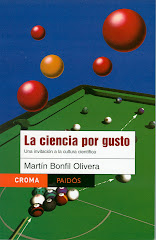Published in Milenio Diario, May 20, 2009
 On May 12, the "Mexican genome" was presented with a lot of hype.
On May 12, the "Mexican genome" was presented with a lot of hype.
But according to the National Institute of Genomic Medicine (Inmegen), which did the work, what was really shown was "the map of the genome of Mexicans". This distinction matters because there is no unique genome that we Mexicans all share. Each human being has its own combination of genes. And although the variation between individuals is minimal (0.5 percent), it's what makes us unique.
The media also gave the wrong impression that the "Mexican genome" information was read letter by letter.
Actually, the study titled "Analysis of genomic diversity in Mexican Mestizo populations to develop genomic medicine in
Inmegen concludes that it would be worthy to perform a haplotype map of the Mexican population. The study is the draft of a draft that would allow to start developing genetic medicine in Mexico.
But reading the statements of Felipe Calderón, the de facto president of Mexico ("we are entering the medicine of the third millennium", "we will have first world health", "we could prevent the development of diseases such as cancer, diabetes, hypertension or obesity, etc."), it looks like we were already in the first world.
Reality is different: Inmegen lacks support. It operates in inappropriate facilities - an office building where they cannot work with radioactivity nor microorganisms - and the construction of their definitive building is plagued with irregularities. Until recently, the Institute had a very rigid hierarchical structure in which only its director could make decisions.
And the situation is general: INDRE (the Diagnostic and Epidemiological Reference Institute), fundamental in the influenza epidemic, is "obsolete and insecure", as reported on monday by MILENIO. As published in the first page of El Universal (one of the most influential newspapers in Mexico), "Mexico is paying its abandonment of science".
With all the shortages on the health research system, to simulate that
(translated by Adrián Robles Benavides) To receive Science for pleasure weekly
in your email, subscribe here!




No comments:
Post a Comment